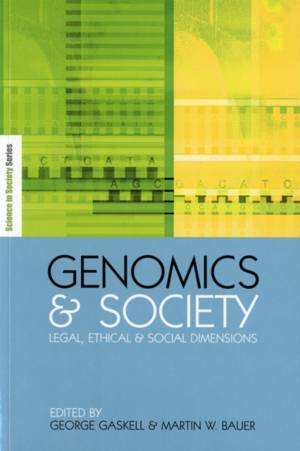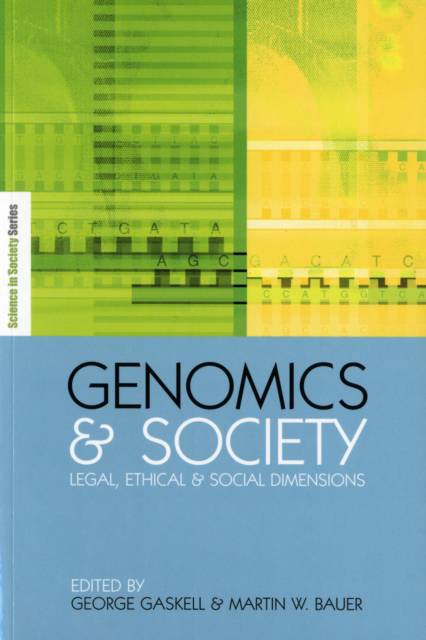
- Afhalen na 1 uur in een winkel met voorraad
- Gratis thuislevering in België vanaf € 30
- Ruim aanbod met 7 miljoen producten
- Afhalen na 1 uur in een winkel met voorraad
- Gratis thuislevering in België vanaf € 30
- Ruim aanbod met 7 miljoen producten
Genomics and Society
Legal, Ethical and Social Dimensions
Omschrijving
From the mid 1990s to the present day, agricultural biotechnology - GM crops and foods - has been the focus of debate and conflict in many European countries. Contrasting views of risks and benefits, trust in science and regulation, the understanding of science, media coverage and mobilization of the public by civil society groups - all have been cited as drivers of public opinion. Designed in part to allay public concerns about GM agriculture, a European moratorium led to a new regulatory framework. The long running controversy is a signal that the public's view cannot be ignored in the development and implementation of new technologies arising out of genomics. Yet, agricultural biotechnologies are but one development in this area. Genetic testing and the uses of genetic information, the cloning of human cells and tissues, and transgenic animals are potentially no less challenging for the public and regulators alike.
This volume, by an international group of social scientists from Europe, North America and Japan, presents a series of comparative perspectives on the social, ethical and legal implications of genomics. The aim is to capture lessons from the controversies of the 1990s and to raise the level of debate on the societal implications of new developments in genomics.
Specificaties
Betrokkenen
- Uitgeverij:
Inhoud
- Aantal bladzijden:
- 280
- Taal:
- Engels
- Reeks:
Eigenschappen
- Productcode (EAN):
- 9781844071142
- Verschijningsdatum:
- 4/10/2007
- Uitvoering:
- Paperback
- Formaat:
- Trade paperback (VS)
- Afmetingen:
- 160 mm x 231 mm
- Gewicht:
- 435 g

Alleen bij Standaard Boekhandel
Beoordelingen
We publiceren alleen reviews die voldoen aan de voorwaarden voor reviews. Bekijk onze voorwaarden voor reviews.








